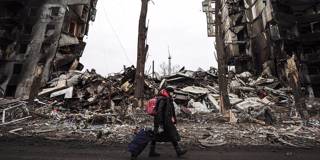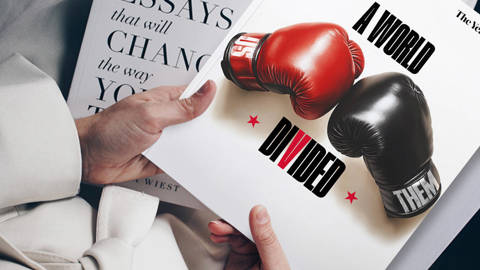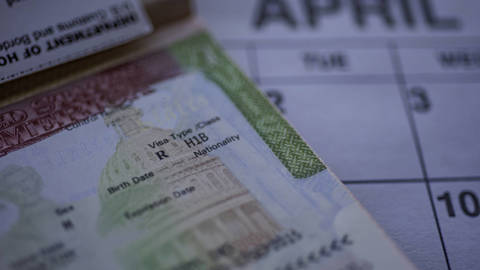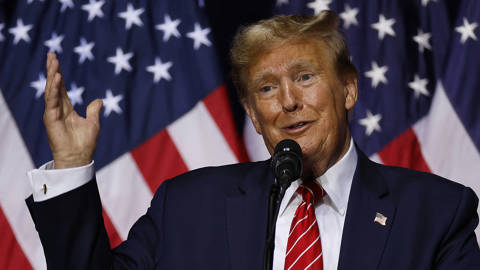OnPoint Subscriber Exclusive
Interviews feature exclusive interviews with prominent leaders and thinkers on issues of global importance.

Writing Off Russia
According to the writer Adam Gopnik, "We breathe in our first language and swim in our second." But for many Russophone Ukrainians, the war against their country that Russia launched in 2014 and escalated in February has meant confronting the moral and political imperative of learning to breathe anew.
Ukrainian novelist Vladimir Rafeenko/Volodymyr Rafeyenko was born in Donetsk in 1969, and lived there, as a writer and professor of Russian philology, until 2014, when Kremlin-sponsored separatists brought war to the Donbas. He fled to a village outside of Kyiv, and has since written a novel in Russian about the grotesque absurdity of the war, The Length of Days (translated by Sibelan Forrester, forthcoming) and a novel in Ukrainian, Mondegreen (translated by Mark Andryczyk) about language, displacement, and being a refugee in one’s own country. This conversation took place by correspondence in March and April 2022, and has been translated from the original Russian, abridged, and edited for clarity.
Marci Shore: In lectures and conversations, you’ve often returned, as if a literary refrain, to the idea “Zdes’ i seichas. Here and now. Here and now it’s necessary to be a human being.” What does that mean for you today?
Volodymyr Rafeyenko: The current context of my life is clear: Russia’s war against Ukraine, a war that Russia unleashed eight years ago, and which entered an infernal phase on February 24. Right now, being human means, above all, being with my own people. Doing what I can for the common victory.
MS: On February 25, the day following the invasion, you wrote to me, “War. A real war.” Where were you then?
VR: When the war began, my wife and I found ourselves in an area occupied by Russian soldiers. We were forced to remain there over a month, and only in April were we miraculously evacuated by volunteers.
MS: How did the Russian soldiers behave? Did you and your wife talk with them at all?
VR: No, we didn’t talk with them. What could we have talked about? Nothing good would come from it – all the more so, given that from the first days of the occupation, news reached us that Russians were killing civilian inhabitants of nearby villages. A person whom I fully trust told me of the execution of an entire family, children as well as adults, by Kadyrovites [Chechen fighters loyal to the Kremlin – ed.] in a village not far from us. They were guilty only of having refused to feed the Russian soldiers.
With time, the behavior of the Russians did change – from moderate fascism to unbounded fascism. In the beginning, when they hoped to take Kyiv quickly, they did not systematically hunt down civilians. But as our forces put up fierce resistance, and the Kremlin’s original goals became more phantasmal, the Russians’ behavior became more abominable.
At the checkpoints through which the volunteers brought me and my wife, the Kadyrovites – before they left the Kyiv oblast – would sometimes amuse themselves by firing into local cars displaying white flags and signs saying “CHILDREN.” It was said that some people they would let through, and some they wouldn’t. And who would manage to get through was impossible to guess.

Secure your copy of PS Quarterly: The Year Ahead 2025
Our annual flagship magazine, PS Quarterly: The Year Ahead 2025, has arrived. To gain digital access to all of the magazine’s content, and receive your print copy, subscribe to PS Digital Plus now.
MS: How were you able to get out?
VR: We’d been trying to get out from the war’s first day. But on the morning of February 24, it was already impossible. There were Russian tanks between us and Kyiv. Fierce battles were raging. When the water, electricity, and internet connection shut off and the shops closed, when it became clear that our very bad situation would get still worse, because there was nowhere to get food, I tried to figure out a way to leave. But the humanitarian corridors didn’t extend to where we were, and we didn’t have our own transportation, which would have at least allowed us to get to those places from where people were being transported to Kyiv. People who had cars started to abandon the village. But we were forced to stay. And when there was no longer any hope, my friend Liubomir Deresh found volunteers – daredevils who agreed to try to cross the Russian checkpoints, collect us, and bring us out by the same route. The first time it didn’t work, and we were despondent, but several days later they did come for us. It was our second evacuation in eight years. Like the first time, we left all of our things behind. But we were enormously happy when we found ourselves on Ukrainian territory.
MS: I’m thinking of Anna Akhmatova’s preface to “Requiem”:
In the terrible years of Yezhovshchina [the Great Terror of 1936-38 – ed.], I spent seventeen months in the waiting lines of the Leningrad prisons. Once, somehow, someone ‘recognized’ me. Then the woman with blue lips standing behind me who, of course, had never in her life heard my name, awakened from the stupor peculiar to all of us there, and asked me, speaking into my ear (all of us there spoke in a whisper):
–Can you describe this?
And I said:
–I can.
Akhmatova’s “I can” affirms a certain kind of epistemological optimism. Is it possible to capture in words this kind of “boundary experience,” what the German philosopher Karl Jaspers called a Grenzsituation?
VR: Throughout the time my wife and I spent in a house rocked night and day by the explosions of Russian artillery, I kept a diary. It was nearly impossible to write in the sense of literary texts, but recording events, states of being, that vital material in the epicenter of which I found myself was for me not only a possibility; it was a necessity. It diverted my attention from the ceaseless air and artillery duels to the right, left, in front of, and behind the tiny dacha settlement where my wife and I had been living for the past several years after we were forced to leave our own city, Donetsk. We abandoned our home there for the same reason we abandoned the house sheltering us now – our life was destroyed by Russia.
MS: With respect to vital material: war must be a moment when the concrete and sensory is most vivid. Yet at the same time, as if paradoxically, the metaphysical is also most vivid: where does evil come from? As if the usual relationship between the empirical and the metaphysical had somehow broken...
VR: The question of where evil comes from fails to interest me very much now. What difference does it make? What matters is the ability to distinguish good from evil. And there, under constant bombardments day and night, there was no thought about the cause of evil. Yes, there was an astonishing sharpness of perception, fear, even terror, and one had to struggle against horror and panic. The empirical was more vivid and terrifying than ever before in my life.
And yet, the metaphysical did approach very closely, gaze at me, and touch me with its hand. I saw the Summer of the Lord a footstep away, and I knew that to die was not terrible, what was terrible was to die a shameful death. And I asked God – if my wife and I were to be condemned to perish among these dachas – to bring us a quick death.
MS: For the philosopher Lev Shestov, a Jew from czarist Kyiv, reason was a very good thing, but reason was unable to reach regions of extremity.
VR: It seems to me that rationalism recognizes the region where it’s applicable. In many respects, rationalism is occupied with maintaining the border between what can and cannot be known. Rationality is the gentility of the intellect, which knows the difference between human actuality and the reality of the Universe, which far exceeds any given historical or human perspective.
MS: Time – temporality – takes on a different form in boundary situations. How are you experiencing time now?
VR: Time does not exist now. That is, it’s very difficult to measure it. Time changed its course already in the occupation zone and in no way has it righted itself. There, years were enclosed in a day, and here a day passes like a single hour.
MS: Together with time, space must also take on different meanings. During a recent zoom discussion, the philosopher Volodymyr Yermolenko in Kyiv explained how the meaning of a window, and the meaning of light, have changed. In what way has space changed for you?
VR: When the air raid siren isn’t going off, it’s quiet and comfortable here. I hate dirt, so I keep everything in a state of ideal cleanliness, which helps me in the struggle against panic and longing, against the loneliness that sometimes begins to choke me. Long before curfew, I shut the windows tightly and turn on the lamp – it’s a way of creating an illusion that you’ve controlled your space.
MS: I feel as if I’d found myself in 1939, but with internet – everything is visible, everything is laid bare. We’re watching people be killed in real time.
VR: There’s a war going on here, a war aimed at the annihilation of the Ukrainian people. The Russians have come to annihilate us as a nation, as a people who have dared to choose their own path of development, one not coinciding with the Kremlin’s imperial ambitions, with the revanchist desires of the mass of the Russian people. The terrible truth is this: a decisive majority of Russians support the annihilation of the Ukrainian people. On the battlefield, the Russians are merciless; in the occupied territories, they carry out atrocities. They pillage and rape, they kill women and children without mercy. In Mariupol and Kharkiv. In Chernihiv and Sumy. If they realize that they’re unable to subjugate a given place, they burn it to the ground.
MS: Evil and cruelty are not new. But the kind of extreme visibility that the internet enables is new – it’s the first time in history that this kind of transparency is possible.
VR: Yes, what is exceptional in what is happening now consists in this transparency. It’s no longer possible to bury your head in the sand and not see. If you do not see the Russian atrocities, if you do not see Russia as an anthropological catastrophe, you are consciously not seeing it. In this way, you are also making a choice between good and evil.
MS: Some three years ago Vladislav Surkov, Putin’s spin doctor, wrote “Putin’s Lasting State” (“Долгое государство Путина”), a kind of “laying bare of the device.” “Our system, as in general everything of ours, naturally does not appear more elegant, but in return is more honest,” Surkov wrote.
...Our state is not divided into the deep and the superficial; it forms a whole, with all its components and symptoms on the surface. The most brutal structures of its power scaffolding run straight along the façade, not concealed by any architectural excesses.
We’re looking now at the “most brutal structures of its power scaffolding. . .not concealed by any kind of architectural excesses.”
VR: In order to justify this regime, Surkov wants to present the matter as if there were no such thing as a perspective from values, as if there were not and could not be such a thing as truth, as if conscience were a fiction.
MS: Here I see a connection between post-truth and Surkov’s laying bare of the device. The absence of secrets does not mean that truth is visible. Several years ago, during a discussion in Kyiv about Peter Pomerantsev’s bookNothing Is True and Everything Is Possible, the translator and psychoanalyst Jurko Prochasko described truth as a boundary. When there are no boundaries, everything is possible – as Dostoevsky’s Ivan Karamazov said, “everything is permitted.” Hannah Arendt describes this state of being without truth as Bodenlosigkeit, groundlessness. Shestov describes truth as “truth that coerces,” and writes that “submission to the truth that coerces is the source of all human virtues.”
VR: Immanuel Kant, in his discussion of moral law, spoke about this much more clearly. There exists, of course, a wholly invisible and all-meaningful Truth, which is perceived by the inner man as a law he is obliged to fulfill. This law, which could be called the Law of Invisible Perspectives and which promises neitherreward nor punishment, constitutes, forms, and defines all of human life in its empiricism.
MS: About Kant: I agree. Further, Kant’s relationship to conscience is provocative in that for Kant, what counts are intentions. We should act in accordance with our moral obligations. But of course we don’t know – we cannot know with certainty – what the consequences of our actions will be. Contingency plays too great a role in life. The best we can do is to act with good intentions...
VR: Very often people are unable to grasp that it is not the intention, which can be good, which gives meaning to our actions. Actions acquire their true meaning only in the world of Others. For that reason it is said in one good book: “You shall know them by their deeds.”
MS: Can truth save us?
VR: I’m certain that a person’s very effort to remain in the realm of truth is salvation being realized.
MS: How can we understand what this realm of truth is?
VR: Truth is never given in a pre-prepared form. Truth, as Marcel Proust said, cannot be received by post. Truth can only be embodied by us, by ourselves, by our own exertions on the border of our empirical life and its metaphysics. We – meaning we human beings – must recognize the fact of co-creation. Truth desires that we be its creators. This is its summons to us.
MS: Proust was right. For the Czech philosopher Jan Patočka, truth was something that had to be constantly sought, even though, as you say, it is never there as an object to be taken in a pre-made form. But that doesn’t mean that there is no such thing as truth and that we can give up on it. What Patočka and other East European dissident philosophers did was to insist that subjectivity does not relativize truth, but grounds it. That we are co-creators of truth makes our responsibility not lesser, but greater.
VR: Truth is not a “what.” Truth is a “who.” It is born each time at the moment of our endeavor, consummating itself on the border of our subjectivity and the thing-in-itself. It is never yesterday, never tomorrow. It is always now, at this moment. And each time it must be re-created by us anew. And each time, we, together with it, create ourselves anew.
MS: I’m thinking about Chekhov’s zoologist in The Duel, who says to the much younger Russian Orthodox deacon, a fellow boarder in a village on the Black Sea: “You are so corrupted by your seminary philosophy that you want to see nothing but fog in everything. The abstract studies with which your youthful head is stuffed are called abstract just because they abstract your minds from what is obvious. Look the devil straight in the eye, and if he’s the devil, tell him he’s the devil, and don’t go calling to Kant or Hegel for explanations.”
VR: Chekhov’s zoologist always lies. Just like the philologist. In the story, Von Koren and Laevsky [the zoologist and the minor bureaucrat-philologist who has run off to the seaside town with his mistress, respectively – ed.] express a very Chekhovian problem, one that haunted all his work: faith without deeds, and deeds without faith. Von Koren, of course, is deeds without faith, deeds driven by cynical, egotistical impulses, with disdain for the world of values. Laevsky is faith without deeds: starry-eyed idealism, erudition, spiritual attachment to all that is elevated – literature, philosophy, art – yet an attachment that in the end offers only empty, deceiving rhetoric under the guise of clever reasoning. Faith without deeds, and deeds without faith – this perspective discloses the utter majority of human problems and delusions. Not to no purpose did the Apostle James speak about this in his epistle.
MS: When Trump appeared on the political scene, it seemed to me that I grasped more quickly than many of my colleagues what was happening precisely because I had been watching what was happening in Ukraine and Russia. I wrote then about Russian words that would help Americans understand our present reality: proizvol’ (arbitrariness tinged with tyranny); obnazhenie (laying bare, exposing openly), prodazhnost’ (“saleability”).
VR: And cynicism.
MS: Yes, although we do have that word in English – in contrast to prodazhnost’, which is something more than corruption, closer to an existential state in which anything – and especially anyone – can be bought or sold. Trump, like Putin, lives in a world where there are no values. There are only prices. Every relationship is instrumental, transactional.
VR: There is probably such a state of being in which a person loses their humanity and no return is possible. This applies to whole communities that have taken their own ego as the measure of all things, disdaining everyone and everything other than themselves.
MS: Now I’m thinking again of Kant: “What has a price can be replaced by something else as its equivalent; on the other hand, whatever is above all price, and therefore admits of no equivalent, has a dignity.” A person does not have a price: a person cannot be replaced or exchanged. A person has dignity. From that follows Kant’s categorical imperative: always treat a person as an end, never as a means.
VR: There you have it: an absolutely apt quotation. These people, these communities are not capable of perceiving the Other as an end. They perceive Others only as a means. And this is made possible by the fact that such people have lost any foundation of nonmaterial values. Dignity cannot be contained in the world or equated with the body. Dignity is that nonmaterial nature of a person, what constitutes us as human.
MS: The twentieth-century Polish poet Stanisław Jerzy Lec, born in Habsburg-era Lemberg, now the Ukrainian city of Lviv, coined an aphorism “sumienie czyste, bo nieużywane” – hisconscience was clean, never having been used.
VR: The main thing, of course, when encountering such beings from the underworld – and it is precisely beings of this kind who destroyed Mariupol – is not to become like they are.
MS: In March, Ukrainian President Volodymyr Zelensky told the Russian soldiers: “If you surrender to our forces, we will treat you as people should be treated – that is, with dignity. The way you are not treated in your army.” For me, this was an important moment: not only the offer of a deal, but also the affirmation of a moral principle: we will not become like you. But it’s not easy to avoid becoming monsters in such a situation. It requires much more strength than most people have.
VR: The West needs to understand that in the war, it is not Putin who is guilty. He did not create the Russians. The Russians created Putin. He is their instrument, their alter ego. He is the flesh of Russian culture as it is, without illusions or sentimentality. And this beast must be stopped.
MS: But it cannot be that 144 million people in Russia are sadists.
VR: From my point of view, the fundamental system error of Russian culture is this: it has consciously placed itself outside of and above general human values … Russians believe that they cannot and should not be judged according to laws and standards common to all people, and that in this sense everything is permitted. “Moscow – the Third Rome,” they’re used to thinking of themselves. Yet quite suddenly it’s turned out that this is not the Third Rome, but the Fourth Reich.
MS: The question of the Russian soldiers’ behavior recalls the 1961 Adolf Eichmann trial in Jerusalem. Eichmann failed to think. For Arendt, who famously covered the trial for The New Yorker, this did not make Eichmann better than other criminals; it made him worse. To fail to think was for her the greatest sin.
VR: To think is the great privilege of Man. Precisely in this effort he becomes something more than an animal. A refusal of this privilege is nearly always conscious. And unforgivable.
MS: Do you believe there’s a way to reach the Russians now?
VR: I think that only a crushing defeat – a terrible and unprecedented defeat – and bitter repentance can sober the Russians and bring them to reality – if they are capable of that.
MS: In relating to Russians there is also a question of intimacy. I’m thinking about the 1941 massacre in the small Polish town of Jedwabne: Jews slaughtered by their Polish neighbors, by people they addressed by the most familiar versions of their names. You have readers in Russia; the people who are coming to kill you speak in your language. In such a situation, what is it possible to say to them? When language no longer works ... is there really no bridge at all?
VR: At the beginning of the century, I positioned myself as a Ukrainian writer who also functions in the Russian cultural-linguistic sphere. It never entered my mind to write in Ukrainian. After 2014, I learned Ukrainian and wrote a novel in Ukrainian, to show Russians and anyone else that even for a Russophone Ukrainian, learning Ukrainian is not a problem – and not only learning it well enough to speak it, but also learning it well enough to write literary texts. And I said more than once in interviews that from this point on, I would write books in both languages – one novel in Russian, one in Ukrainian. I very much wanted it to be clear to everyone that the problem of defending the Russian-speaking population in Ukraine has never existed – nor does it now, though it was precisely with this slogan that Russian combatants “liberated” me and my family from our own country.
We were forced to leave for Kyiv. But we knew of course that the Russians would not stop there. And so it happened. After February 24, I made a firm decision never again to publish a single text in Russian. I do not want to be understood by those beasts who are murdering Ukrainian children. I have nothing to say to them. A language has not been invented in which it is possible to talk with someone who has come to your house to murder you, to murder your wife and your child, to destroy your home and scorch your land. And I have no desire to contribute any longer, even if indirectly, to Ukrainian literature in the Russian language. If it does continue, then let it continue without my participation.
MS: This, too, feels terribly sad to me: Putin does not deserve this language. The Russian language ought to belong much more to you than to him. He could never do with this language what you do with it. He could never understand Chekhov the way you understand Chekhov. Why should you give up your language to him...
VR: I’m simply unable to write in Russian any longer. The very thought that someone would consider me a Russian writer because I write in Russian is intolerable.
MS: Eight years ago, when I was working on a book about the Maidan, I listened to Putin’s Crimea speech. I thought it was appalling, and full of lies, but I was able to listen. A year and a half later, when Trump appeared on the scene, I tried to listen, and I couldn’t. It wasn’t that I thought he was worse than Putin. It was that I couldn’t stand his voice. It was my native language; I had no distance from it. I felt each word too intensely.
VR: Yes, this is exactly what I’m talking about as well ... The trauma from what Russians have done to my country, and to my life, is so deep that it may not ever heal.
MS: As the bombs fell over his city of Kharkiv in March, the Russophone Ukrainian writer Andrei Krasniashchikh recalled Theodor Adorno’s assertion that, “To write poetry after Auschwitz is barbarism.” Adorno, it seems, changed his mind after reading Paul Celan, who survived the Holocaust and went on to write extraordinary poetry in German. When I was pregnant with our daughter, my husband wanted to name her “Sulamith” after the Sulamith in Celan’s “Todesfuge” (“Death Fugue”): “dein goldenes Haar Margarete / dein aschenes Haar Sulamith” (“your golden hair Margarete/your ashen hair Sulamith”). And I both wanted to and didn’t want to – the name is beautiful, but sad, just like that astounding poem. Celan was from Chernivtsi, which today is part of Ukraine. And I find myself imagining that one day a Ukrainian poet will save Russian poetry the way Celan saved German poetry.
VR: I think that Russian poetry, as a cultural medium, is threatened by nothing other than itself. It needs to be saved only from itself, and no one is able to do that apart from Russians themselves. If they ever awaken to reality.
MS: Soon after the Russian invasion, I was exchanging messages with Jurko Prochasko from Lviv. At one point I asked him: What more can I do for you? And he answered: Believe. Where does belief, faith come from now?
VR: From the human heart. From the sun that rises over those who are good and those who are evil. From the writings of Shakespeare and the smiles of children. From the smiles of your friends and the embraces of your child. From the warm rain of the coming spring and from the dark blue sky over our heads.



